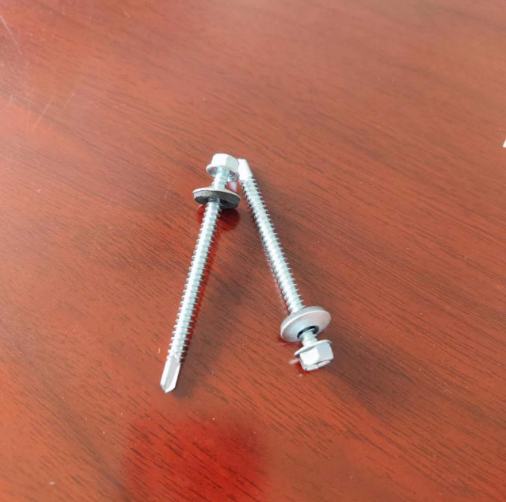Dimensions for 1/4 Inch Flat Washer Specifications and Factory Standards
Understanding 1/4 Flat Washer Dimensions A Comprehensive Guide
Flat washers are essential components used in various mechanical assemblies to distribute loads, prevent damage to surfaces, and enhance the overall performance of fasteners. Among the different types of washers available, the 1/4 flat washer holds significant importance, especially in industrial and manufacturing contexts. This article will explore the dimensions, applications, and considerations for selecting the right 1/4 flat washers for your projects.
What is a Flat Washer?
A flat washer is a thin, disc-shaped piece of material with a hole in the center. It is typically used in conjunction with nuts and bolts to provide a larger surface area under the fastener and prevent surface damage when tightening. Flat washers can be made from various materials, including metal, rubber, and plastic, with metal washers being the most common due to their strength and durability.
Importance of Dimensions
When discussing washers, dimensions are critical to ensuring proper fit and function. The primary dimensions of a 1/4 flat washer include the inner diameter (ID), outer diameter (OD), and thickness. The 1/4 refers to the inner diameter, which is designed to fit on a 1/4-inch bolt.
Typically, the dimensions of a 1/4 flat washer are as follows
- Inner Diameter (ID) 0.265 inches - Outer Diameter (OD) 0.625 inches - Thickness Generally ranges from 0.020 to 0.045 inches, depending on the washer's material and intended application.
Understanding these dimensions is crucial when selecting the right washer for your application to ensure it fits securely while providing adequate load distribution.
Types of Materials
1. Steel Washers Often used in high-stress applications where strength and durability are essential. Steel washers can be plated or galvanized to resist corrosion. 2. Stainless Steel Washers These are used in environments prone to moisture or corrosive substances, as stainless steel offers superior resistance to rust and corrosion.
3. Plastic Washers Typically utilized in electrical applications or where lubrication is necessary, plastic washers provide insulation and smooth performance.
1/4 flat washer dimensions12 factory

Applications of 1/4 Flat Washers
The versatility of 1/4 flat washers makes them suitable for various applications, including
- Automotive In vehicle assembly, flat washers are critical for securing parts and preventing loosening due to vibrations. - Construction Used in framing and metal connections to spread loads evenly and prevent structural damage.
- Electronics In circuit board assemblies, flat washers can be used for insulation purposes.
- HVAC Systems Flat washers play a role in securing components and preventing airflow leaks.
Considerations for Selection
When choosing the right 1/4 flat washer, several factors should be considered
- Load Requirements Assess the weight and force being applied to determine the washer's material and thickness. - Environment Consider the operating environment and choose a material that can withstand conditions such as humidity, chemicals, or high temperatures.
- Compatibility Ensure that the washer is compatible with the bolt and nut being used, as mismatched sizes can lead to failure.
Conclusion
In summary, the 1/4 flat washer is a vital component in mechanical assemblies, providing support, load distribution, and surface protection. Understanding its dimensions, materials, and applications is crucial for ensuring optimal performance in various projects. By carefully selecting the right washer for the specific application, you can enhance the reliability and longevity of your mechanical assemblies, leading to successful and efficient operations. Whether in automotive, construction, or electronics, the importance of flat washers cannot be overstated. They are often the unsung heroes of engineering, quietly ensuring stability and safety in countless applications.
-
Top Choices for Plasterboard FixingNewsDec.26,2024
-
The Versatility of Specialty WashersNewsDec.26,2024
-
Secure Your ProjectsNewsDec.26,2024
-
Essential Screws for Chipboard Flooring ProjectsNewsDec.26,2024
-
Choosing the Right Drywall ScrewsNewsDec.26,2024
-
Black Phosphate Screws for Superior PerformanceNewsDec.26,2024
-
The Versatile Choice of Nylon Flat Washers for Your NeedsNewsDec.18,2024










